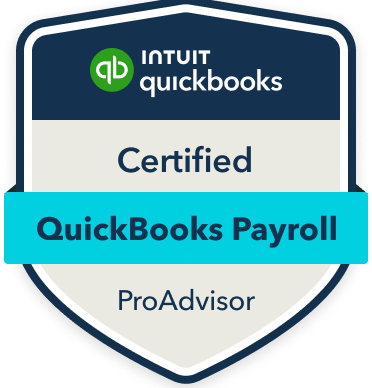Why You Need a Bookkeeper Even If You're Using Accounting Software
In today’s digital age, many small business owners rely on accounting software to handle their financial management. Tools like QuickBooks, Xero, and FreshBooks provide an array of automated features designed to simplify accounting tasks and keep track of finances with ease. However, despite the increasing sophistication of these software solutions, there is still a critical need for a professional bookkeeper.


Why You Need a Bookkeeper Even If You're Using Accounting Software
In today’s digital age, many small business owners rely on accounting software to handle their financial management. Tools like QuickBooks, Xero, and FreshBooks provide an array of automated features designed to simplify accounting tasks and keep track of finances with ease. However, despite the increasing sophistication of these software solutions, there is still a critical need for a professional bookkeeper. Here’s why:
Accounting Software Can’t Interpret Complex Transactions
Accounting software is built to handle basic financial transactions such as income, expenses, and balance sheets. However, it lacks the nuanced understanding of more complex accounting scenarios that a bookkeeper brings to the table. For example, determining the proper classification of transactions, handling accruals, or understanding tax implications requires knowledge beyond what the software can offer. A bookkeeper ensures that every entry is recorded correctly and in the proper accounts, avoiding costly mistakes.
A Bookkeeper Can Customize Your Financial Reports
One of the key features of accounting software is the ability to generate reports. However, these reports are often limited to predefined templates that may not provide the insights you need for your specific business needs. A bookkeeper can help you customize management reports to track the key performance indicators (KPIs) that matter most for your business. Whether it’s cash flow analysis, profitability by department, or project-based reporting, a bookkeeper can tailor the reporting to provide better visibility into your business’s financial health.
Human Expertise to Interpret Financial Data
While accounting software can generate reports, it doesn’t have the ability to analyze and interpret the data the way a bookkeeper can. A bookkeeper can review your financials and provide insights, such as spotting discrepancies, identifying trends, or advising on areas for improvement. They can explain the financial data in simple terms.
Time Savings and Stress Reduction
As a business owner, your time is valuable. Spending hours reconciling accounts, reviewing financial reports, or worrying about tax compliance can take you away from the core activities that drive revenue and growth. With a bookkeeper handling the day-to-day financial operations, you can focus on what you do best. In addition to saving time, knowing your financials are in good hands reduces stress and gives you peace of mind.
Integration With Other Systems
Modern accounting software often integrates with other tools, such as payroll systems, payment processors, or inventory management software. However, these integrations require setup, maintenance, and troubleshooting. A bookkeeper can help ensure that all your systems are integrated correctly, so you’re getting accurate, up-to-date financial data from all parts of your business.
Better Decision-Making
As a business owner, you’re faced with many important decisions on a daily basis. Without accurate financial data and a clear understanding of your business’s performance, making these decisions can be difficult. A bookkeeper ensures that your financial information is organized and up-to-date, providing you with the clarity you need to make informed decisions. Whether it’s making a significant investment, taking out a loan, or planning for future growth, having accurate and reliable financial data is crucial.
Scaling Your Business
As your business grows, so does the complexity of its financial management. You may start with a simple software solution, but as you scale, you may need additional features or support that accounting software cannot provide. A bookkeeper can help guide you through these changes, ensuring that your accounting processes are scalable and that your business can handle increased volume without falling behind.
Avoiding Costly Errors
Even with the best accounting software, mistakes can happen. If you enter data incorrectly, forget to reconcile accounts, or miss an important financial transaction, it can lead to costly errors. A bookkeeper’s job is to monitor and catch errors before they snowball, saving you money in the long run. They can also prevent fraud by ensuring that transactions are verified and reconciled regularly.
Providing Financial Insight for Growth
Bookkeepers do more than just crunch numbers—they provide actionable advice based on the financial data they manage. By looking at your books closely, they can offer recommendations for increasing revenue, reducing costs, and optimizing your financial structure. They may even help you identify new revenue streams or operational efficiencies you hadn’t considered.
While accounting software can certainly help streamline and automate many aspects of financial management, it’s not a substitute for the expertise, experience, and personalized service that a bookkeeper can provide. Bookkeepers can ensure that your financial records are accurate, customized to your needs, and compliant with tax laws. They can also help you make smarter business decisions, scale efficiently, and avoid costly mistakes. If you want your business to thrive and grow, having a dedicated bookkeeper on your team is a wise investment that will pay off in the long run.
By combining the power of accounting software with the expertise of a skilled bookkeeper, you can ensure that your business is in the best possible financial shape.








